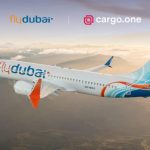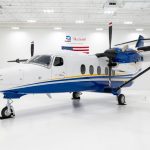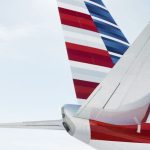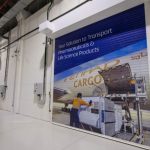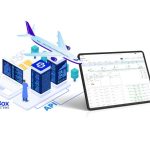Amazon enters air cargo industry
Amazon’s 2015 Revenue – $107 Billion
IPO Price – $18/share
Current trading price – $831/share
The world’s largest e-Commerce retailer, the US-based Amazon.com, is the newest player in the air cargo industry, rivaling major freight service providers FedEx, UPS, DHL, among others. With the holiday season approaching, analysts and consumers are closely watching Amazon’s strategy on delivering products at quicker pace now that it’s using its own cargo planes.
he online retail giant best known for its tech products launched its first ever branded air cargo plane named Amazon One in August during the Seafair’s Air Show in its hometown Seattle, Washington. At least 11 planes are so far in operation.
The Boeing 767-300 operated by Amazon’s air cargo provider Atlas Air, is the first of 40 planes the firm envisions to use to ship various products to its different warehouses and stores across the globe and ultimately to consumers.
Amazon has agreed to lease 40 planes through air cargo partners Atlas Air and ATSG.
“Creating an air transportation network is expanding our capacity to ensure great delivery speeds for our Prime members for years to come,” said Dave Clark, Amazon’s senior vice president of worldwide operations during the launch of Amazon One.
Amazon said the move is part of its pledge to “ensure great delivery speeds and supply chain capacity for its customers.”
The company has more than 125 fulfillment centers and over 20 sortation centers across the world use high-end algorithms, robotics, machine learning and other technological innovations to increase delivery speeds for customers.
Last year, it launched Amazon Flex, the mobile application that allows individuals to sign-up, be vetted and begin delivering for Amazon, now a dedicated network of 4,000 trailers to increase trucking capacity.
A clever move
Dr. Wouter Dewulf, a professor at the University of Antwerp in Belgium who specializes in cargo, told Air Cargo Update Amazon’s decision to operate its own fleet of cargo planes is “a very clever move.”
“I think it’s a very clever move,” Dr. Dewulf said on the company’s new cargo venture. “Service delivery is of utmost importance. I’ve heard that they are having service delivery problems during peak times like Christmas, so they want t to own the complete supply chain.”
“It makes good business sense because the company pays a lot of money on orders, which are sometimes delayed,” he added.
The global e-retail sales for 2013 reached $840 billion and analysts project it’s going to hit $1.5 trillion by 2018.
North America remains the largest regional market for online shopping with sales of about $126 billion in 2013.
During the same period, the global B2C e-commerce sales grew by 19 percent with the US, UK, France and emerging markets in Asia like China, the Philippines, India, Thailand, leading the growth.
Dr. Dewulf said the prospects for e-Commerce remains bright and the whole air cargo industry stands to benefit from this scenario.
But he said Amazon doesn’t seem to be targeting profit for now but market maximization in return to more favorable sales in the future.
“For the moment, Amazon doesn’t go for profit maxi-mization. It goes for market maximization and to obtain that you must have full control of service delivery,” said Dr. Dewulf. “It’s to their business advantage.”
In the US, the average delivery cost for online shopping is $4 from point to point. In Europe, it’s 4 Euros. Delivery in the Middle East is cheaper because of the workers’ relatively lower salaries compared to their counterparts in developed countries.
Entrepreneurial Spirit
Amazon began as a small online store in 1995 mainly selling books. It was first named as Cadabra but was changed to Amazon when someone mistook it as “cadaver.”
Its founder Jeff Bezos, who has two Bachelor of Science degrees in electrical engineering and computer science, left his high-paying Wall Street job to start-up Amazon upon learning that the tech industry would soar by 2,300 percent.
He renamed the company Amazon after the biggest river in the world located in Brazil because he wanted his business to be exotic and to be the biggest in the world.
At its initial offering in Nasdaq, Amazon, which trades under the symbol AMZN, was sold at just $18 per share. As of press time, it was trading at $831 per share with prospects of earning more with the company’s entry into the cargo industry.
Forbes Magazine ranked this year Bezos as the third richest person in the world with assets of over $72 billion, much of which are from his more than 80 percent shares at Amazon.com.
He bought the Washington Post in 2013 for $250 million in cash. He also has stakes in dozens of start-up projects, including Uber.










